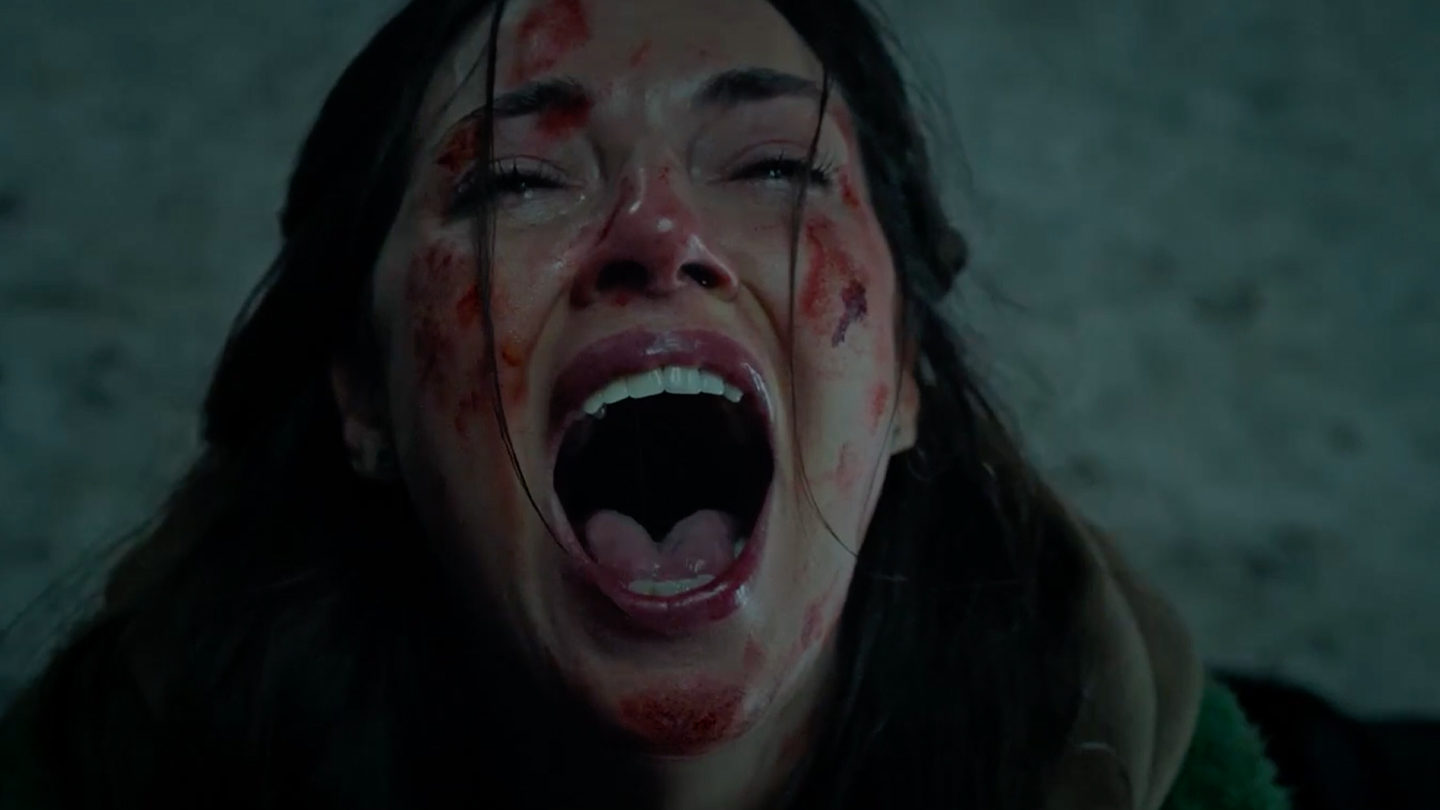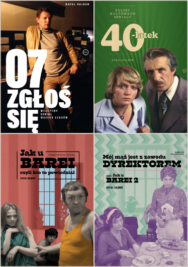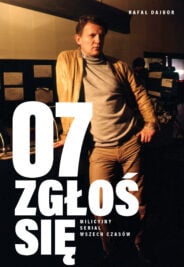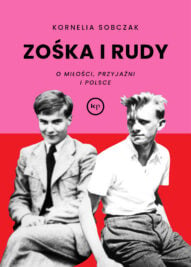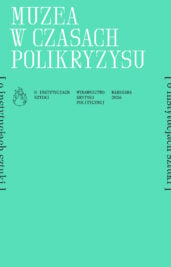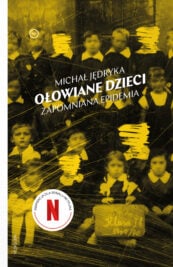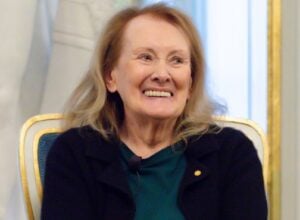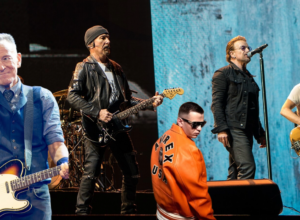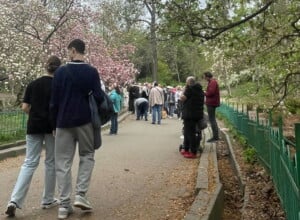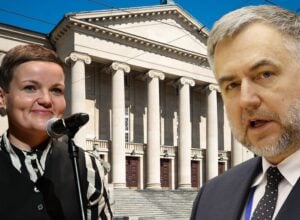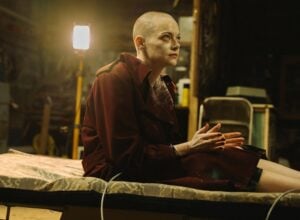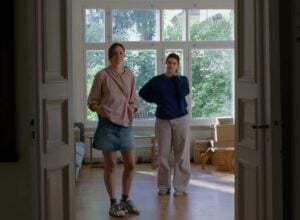Kaja Puto: Wojna to dobry czas dla kina?
Martyna Lach: To ważny czas dla kina, bo opowiada światu o tym, co dzieje się w Ukrainie. A że zachodni widz jest już tą wojną nieco znudzony – filmowcy prowokowani są do tego, by poszukiwać nowych form opowieści.
Na początku pełnoskalowej wojny system produkcji padł, plany zdjęciowe zostały wstrzymane, a filmowcy i filmowczynie albo wstąpili do armii, albo wyjeżdżali z dziećmi z kraju, albo uczestniczyli w dokumentacji zbrodni wojennych dokonywanych przez Rosjan czy realizacji klipów dla ukraińskiego wojska. Później zawieszone produkcje wznowiono, zaczęły powstawać też nowe filmy – przede wszystkim dokumentalne, na przykład 20 dni w Mariupolu Mstysława Czernowa czy Wschodni front Witalija Manskiego. To wspaniałe filmy, ale zdaje się, że zaczęły zlewać się widzom w jeden obraz wojennego horroru.
Dlatego by utrzymać uwagę zachodniego widza, ukraińscy filmowcy poszukują dziś oryginalnego spojrzenia na wojnę. Przykładem jest film dokumentalny Intercepted Oksany Karpowicz. Zdjęcia zniszczeń zmontowane zostały w nim z nagraniami rozmów rosyjskich żołnierzy z matkami i żonami, które przechwycił ukraiński wywiad. Film ten był pokazywany na tegorocznym festiwalu Berlinale i zrobił tam piorunujące wrażenie.
Z kolei na festiwalu Ukraina! pokazujecie Real Ołeha Sencowa.
Reżysera, który cztery lata spędził w rosyjskiej kolonii karnej, wrócił do Ukrainy w ramach wymiany więźniów, a w 2022 roku zaciągnął się do wojska. Walczy na pierwszej linii frontu, był czterokrotnie ranny, brał udział w obronie Bachmutu z kamerą GoPro na hełmie. Zmontował Real z uzyskanych w ten sposób materiałów.
A nie jest tak, że z drugiej strony wojna to trudny czas dla artystów ze względu na panującą cenzurę? Pytam o to, bo ukraińskie środowisko dziennikarskie w ostatnim czasie narzeka na ograniczenia stawiane im przez władzę.
Nic mi o takich ograniczeniach nie wiadomo, myślę, że zależy to raczej od samych filmowców. Jedni sądzą, że kino w czasie wojny powinno pełnić funkcję propagandową, i skupiają się na opowiadaniu światu ukraińskiej narracji na temat wojny, inni uważają, że wojna nie zwalnia Ukraińców od myślenia o sobie krytycznie.
Przykładem takiego nieoczywistego filmu są Szare pszczoły Dmytro Mojsejewa, którym otworzyliśmy tegoroczny festiwal. Opowiada o dwóch emerytowanych pracownikach kopalni na Donbasie, którzy nie do końca potrafią się odnaleźć w czarno-białych kategoriach czasów wojny.
A powstają filmy, które jej nie dotyczą?
Jak najbardziej, powstaje na przykład całkiem sporo filmów o latach 90. i dorastaniu w tamtym czasie – to tendencja, którą obserwowaliśmy już przed wojną. Ukraińcy mierzą się z upadkiem Związku Radzieckiego i jego spuścizną.
W ubiegłym roku pokazywaliśmy na festiwalu Do you love me? Toni Nojabrowej i Kamień, papier, granat Iryny Ciłyk. W ramach tegorocznej edycji prezentujemy Forever, forever Anny Buriaczkowej – film o zbuntowanej kijowskiej młodzieży przełomu mileniów – oraz Diagnozę: dysydenta Denysa Tarasowa, który opowiada o radzieckim zwyczaju umieszczania niewygodnych politycznie osób w szpitalach psychiatrycznych.
Nie wszystkie ukraińskie kina działają, jednak w pewnej odległości od linii frontu, w Kijowie czy we Lwowie, widownie pękają w szwach. Podobnie wygląda to w teatrach. Zdaje się, że nikt nie zrobił dla rozwoju kultury ukraińskiej tyle co Putin…
A przy okazji dla języka ukraińskiego, bo jeszcze parę lat temu znaczna część ukraińskich produkcji powstawała w języku rosyjskim. Wojna zwiększyła zainteresowanie ukraińskim kinem wśród Ukraińców. Każdy potrzebuje sobie czasami jakąś odpocząć od wojny i po prostu obejrzeć dobry film. Dlatego powstają też lżejsze produkcje – komedie, kryminały czy horrory. W ubiegłym roku pokazywaliśmy na festiwalu Smak wolności Ołeksandra Berezana, komedię romantyczno-kulinarną z pięknymi zdjęciami Lwowa w ciepłych barwach. W tym roku mamy w programie Lekcje tolerancji Arkadija Nepytaliuka – komedię z wątkiem LGBT+, no i horror, Wiedźmę z Konotopu Andrija Kołesnyka.
Słuchaj podcastu „Blok Wschodni”:
Ten ostatni tytuł to tegoroczny hit ukraińskich kin – opowiada o wiedźmie, która mści się na Rosjanach. Film wywołał w Ukrainie dyskusje, bo niektórzy uważają, że ukraińska kultura poświęca wątkom rosyjskim zbyt wiele uwagi i że właściwą drogą do jej dekolonizacji jest skupienie się na sobie, a nie ciągłe wałkowanie swojej relacji z wrogiem.
A jak podchodzi się do ukraińskiej spuścizny radzieckiego kina?
Ukraińskie kino było dość specyficzne na tle kinematografii radzieckiej, by wymienić chociażby tradycję ukraińskiego kina poetyckiego. Nie spotkałam się z opinią, że należałoby tę spuściznę odrzucić. Wręcz przeciwnie, filmowcy interesują się ukraińskimi twórcami z tamtego okresu, czego przykładem jest Sentymentalna podróż na planetę Paradżanow Tarasa Tomenko – dokumentalny hołd złożony gruzińsko-ormiańsko-ukraińskiemu reżyserowi Siergiejowi Paradżanowowi, który również prezentujemy na tegorocznym festiwalu.
Na co jeszcze warto zwrócić uwagę w jego programie?
W tym roku sporo uwagi poświęcamy Tatarom krymskim – to setna rocznica ich deportacji, a także dziesiąta rocznica aneksji Krymu przez Rosję. W tej sekcji szczególnie polecam Cichą deportację Dmytro Dżulaja oraz 1944. Krym. Deportację Fatimy Osman i Junusa Paszy.
Organizujemy też debatę o dezinformacji. To dla nas bardzo ważny temat, bo jako festiwal kina ukraińskiego spotykamy się ostatnio z zalewem fejków i hejtu. Chcemy uwrażliwić naszych widzów na to, jak nie poddawać się tego rodzaju manipulacji.
To wasza dziewiąta edycja. Czy zainteresowanie widzów ukraińskim kinem zwiększyło się w ostatnich latach?
Ostatnich osiem lat spędziliśmy na zachęcaniu polskiej publiczności do zapoznania się z ukraińską kinematografią. Udało nam się stworzyć stałą widownię, która wraca do roku po więcej. W 2016 roku, gdy zaczynaliśmy festiwal, w pamięci widzów wciąż żywy byłe obrazy Majdanu i wydarzeń 2014 roku, ale już dwa lata później część publiczności pytała, czy wojna w Ukrainie jeszcze trwa. Od 2022 roku z oczywistych względów mamy więcej publiczności ukraińskiej.
Generalnie można powiedzieć, że wojna przysłużyła się promocji ukraińskiego kina. Jego rozkwit zaczął się już po 2014 roku, czyli po Majdanie, jednak dopiero teraz doczekało się ono przeglądów w wielu miastach świata. Instytut Ukraiński prężnie pracuje nad jego promocją, ale ważne jest również to, że poziom filmów z roku na rok jest coraz lepszy. Ukraińskie filmy odnoszą sukcesy na różnych festiwalach – i to cieszy.
*
- Ukraina! Festiwal Filmowy potrwa do niedzieli 27 października w warszawskim kinie Atlantic, Kinotece i Centrum Kultury Filmowej im. Andrzeja Wajdy. Wybrane filmy będzie można obejrzeć w dniach 1–17 listopada 2024 roku na platformie MEGOGO.PL, a także w kinach w Krakowie, Gdyni, Toruniu, Łodzi, Lublinie, Płocku, Poznaniu, Szczecinie i we Wrocławiu.
*
Martyna Lach – dyrektorka programowa i współorganizatorka UKRAINA!FF, managerka brytyjskiego zespołu The Tiger Lillies, organizatorka wydarzeń muzycznych, filmowych i performatywnych.

 Wspieraj
Wspieraj 

 Wspieraj
Wspieraj  Wydawnictwo
Wydawnictwo 
 Przekaż
Przekaż 
